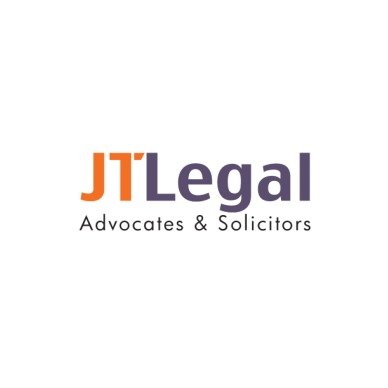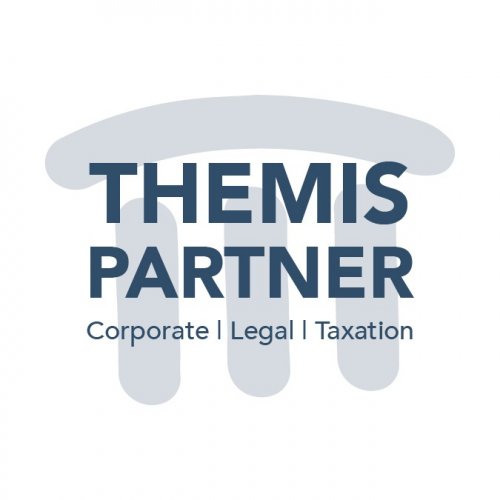Best Nonprofit & Charitable Organizations Lawyers in Marina
Share your needs with us, get contacted by law firms.
Free. Takes 2 min.
List of the best lawyers in Marina, Singapore
About Nonprofit & Charitable Organizations Law in Marina, Singapore
Nonprofit and charitable organizations in Marina, Singapore, play a crucial role in various sectors such as education, health, social services, and community development. These organizations are established to provide public benefits rather than generate profit. The legal framework governing these entities is designed to ensure transparency, accountability, and efficient use of resources. In Singapore, the Charity Council and the Commissioner of Charities oversee compliance and best practice standards for these organizations. Whether you are starting a new nonprofit, managing an existing one, or considering restructuring, understanding the legal landscape is essential.
Why You May Need a Lawyer
Engaging a lawyer specializing in nonprofit and charitable organization law is vital in many situations. If you are forming a nonprofit, a lawyer can guide you through the maze of legal requirements for registration and compliance. For existing organizations, legal assistance might be necessary for issues related to tax benefits, drafting contracts, or handling donations and fundraising activities. Additionally, disputes within the organization, or with external parties, may require legal intervention to ensure resolution complies with the law. Lawyers also help in ensuring that governance frameworks are robust and aligned with legal obligations, protecting both the organization and its stakeholders.
Local Laws Overview
The legal framework for nonprofits and charities in Singapore, including Marina, is mainly guided by the Charities Act and the Societies Act. These laws define what constitutes a charity, govern how charities are registered, describe allowable activities, and establish financial reporting requirements. Additionally, nonprofits must adhere to guidelines issued by the Commissioner of Charities to maintain their charitable status. Nonprofits aiming for tax-exempt status must also comply with regulations under the Income Tax Act. Governance frameworks should reflect the Code of Governance for Charities and IPCs (“Institutions of a Public Character”) to ensure accountability and transparency.
Frequently Asked Questions
1. What is required to register a nonprofit in Marina, Singapore?
To register a nonprofit, you need to establish a legal entity, either as a society under the Societies Act, a company limited by guarantee under the Companies Act, or a charitable trust. You will also need to apply for charity status with the Commissioner of Charities.
2. What are the reporting requirements for nonprofits?
Nonprofits must submit annual returns and financial statements to the Commissioner of Charities. These documents should reflect all financial transactions and adherence to standards detailed in the Charities Act.
3. Can a nonprofit in Singapore engage in commercial activities?
Yes, but the commercial activities must align with and support the organization’s charitable objectives, and the profits must be used for these purposes. Such activities should be disclosed in financial reports.
4. Are donations to my nonprofit tax-deductible for donors?
Donations are tax-deductible only if your nonprofit is an approved Institution of a Public Character (IPC). Otherwise, donors will not receive tax deductions for contributions.
5. How can we achieve IPC status for our charity?
To achieve IPC status, your organization must apply to the Commissioner of Charities and meet specific criteria, including activities that are exclusively benevolent in nature and benefiting the Singapore community.
6. What are the liabilities of board members in a nonprofit?
Board members are responsible for ensuring the organization operates in compliance with laws and its objectives. They are liable for governance failures and breaches of duty unless protections such as indemnity insurance are in place.
7. How can a charity amend its constitution?
Amendments require approval by a majority vote of the governing body and must be notified to the Commissioner of Charities. Major changes might also need members’ approval and should comply with legal requirements.
8. What should be included in a nonprofit's constitution?
A nonprofit’s constitution should outline the objectives, governance structure, decision-making processes, member rights and obligations, and procedures for constitutional amendments.
9. Can a nonprofit be dissolved, and what happens to its assets?
A nonprofit can be dissolved following its constitutional procedures, but unresolved liabilities must be settled first. Remaining assets should be distributed in accordance with the organization’s objectives, or as directed by a court.
10. What is the role of the Charity Council in Singapore?
The Charity Council aims to promote and enhance good governance and best practices, provide advice to charities, and build public confidence through transparent and accountable charitable activities.
Additional Resources
Consider exploring the following resources for more information or assistance:
- Commissioner of Charities
- Charity Portal Singapore
- National Volunteer & Philanthropy Centre (NVPC)
- Law Society of Singapore
- Accounting and Corporate Regulatory Authority (ACRA)
Next Steps
If you require legal assistance in the area of Nonprofit & Charitable Organizations, consider taking these steps:
- Identify specific areas where legal guidance is needed, such as registration, compliance, or tax issues.
- Research and engage a lawyer with expertise in nonprofit law in Singapore, ensuring they understand the local legal framework and your organization's needs.
- Gather relevant documents and information about your organization to facilitate informed legal advice.
- Set up an initial consultation to discuss your needs and explore potential legal solutions.
Lawzana helps you find the best lawyers and law firms in Marina through a curated and pre-screened list of qualified legal professionals. Our platform offers rankings and detailed profiles of attorneys and law firms, allowing you to compare based on practice areas, including Nonprofit & Charitable Organizations, experience, and client feedback.
Each profile includes a description of the firm's areas of practice, client reviews, team members and partners, year of establishment, spoken languages, office locations, contact information, social media presence, and any published articles or resources. Most firms on our platform speak English and are experienced in both local and international legal matters.
Get a quote from top-rated law firms in Marina, Singapore — quickly, securely, and without unnecessary hassle.
Disclaimer:
The information provided on this page is for general informational purposes only and does not constitute legal advice. While we strive to ensure the accuracy and relevance of the content, legal information may change over time, and interpretations of the law can vary. You should always consult with a qualified legal professional for advice specific to your situation.
We disclaim all liability for actions taken or not taken based on the content of this page. If you believe any information is incorrect or outdated, please contact us, and we will review and update it where appropriate.









